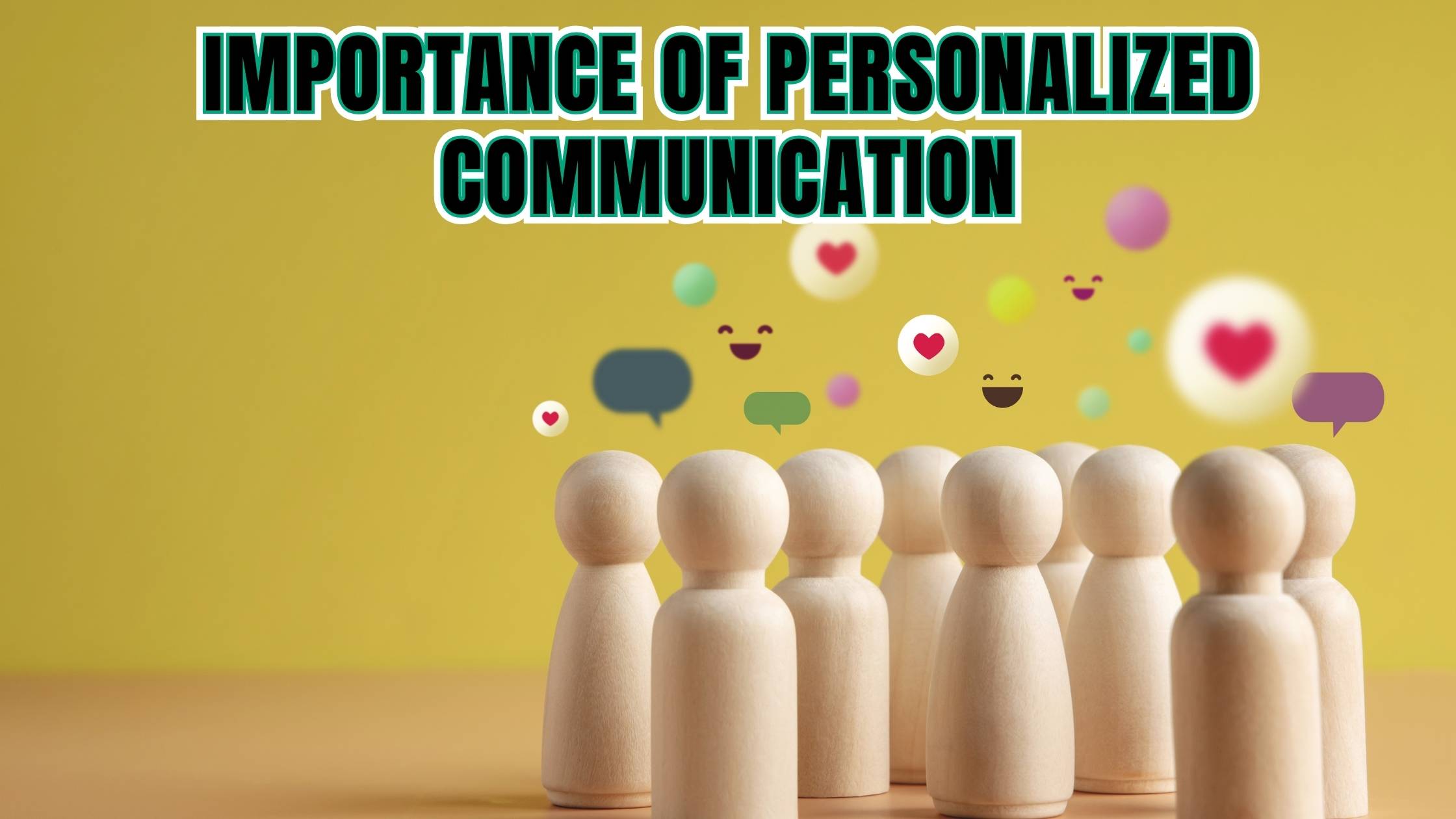Importance of personalized communication
- Proposal Software Customer Relationship Management


Importance of Personalized Communication
In today’s digital age, personalized communication has become increasingly crucial for businesses aiming to build meaningful connections with their audience. From tailored marketing messages to customized product recommendations, personalized communication allows companies to engage customers on a deeper level, fostering loyalty and driving revenue. This comprehensive guide explores the significance of personalized communication in the context of SaaS businesses and provides insights into effective strategies for implementation.
Understanding the Value of Personalized Communication
- Enhanced Customer Experience: Personalized communication demonstrates that a company understands its customers’ preferences and needs, leading to a more positive and satisfying experience. By delivering relevant content and offers, businesses can delight customers and increase retention rates.
- Improved Engagement and Conversion: Tailoring communication based on customer data and behavior increases engagement levels and conversion rates. Whether through email marketing, website personalization, or targeted advertising, personalized communication resonates with audiences and prompts action.
- Building Trust and Loyalty: When customers feel understood and valued, they are more likely to develop trust in a brand and remain loyal over time. Personalized communication fosters long-term relationships by nurturing ongoing engagement and demonstrating genuine care for the customer’s journey.
- Optimized Marketing Spend: By targeting specific segments of their audience with personalized messages, businesses can optimize their marketing spend and achieve higher returns on investment. Rather than casting a wide net, personalized communication allows for more efficient use of resources.
Strategies for Implementing Personalized Communication
1. Data Collection and Analysis:
Utilize customer relationship management (CRM) systems and analytics tools to gather and analyze data on customer demographics, preferences, and behavior. This data serves as the foundation for crafting personalized communication strategies.
2. Segmentation and Targeting:
Divide your audience into distinct segments based on factors such as location, purchase history, and browsing behavior. Tailor your communication efforts to address the unique needs and interests of each segment, delivering relevant messages at the right time.
3. Dynamic Content Personalization:
Leverage dynamic content personalization techniques to customize website content, email campaigns, and digital ads in real-time based on individual user attributes and interactions. Dynamic personalization ensures that each customer receives content that aligns with their preferences and stage in the buyer’s journey.
4. Behavioral Triggers and Automation:
Implement automated workflows triggered by specific customer actions or milestones, such as abandoned cart emails, welcome series, or product recommendations based on past purchases. Automation streamlines the personalization process and ensures timely communication with minimal manual effort.
5. Feedback and Iteration:
Continuously solicit feedback from customers and monitor the performance of your personalized communication initiatives. Use insights gleaned from customer feedback and analytics to refine your strategies and improve the relevance and effectiveness of your messaging over time.
Relevant SaaS Products for Personalized Communication
1. HubSpot:
HubSpot offers a comprehensive suite of CRM and marketing automation tools, including email marketing, lead nurturing, and customer segmentation capabilities, to help businesses personalize communication at scale.
2. Mailchimp:
Mailchimp provides email marketing and automation software with advanced segmentation and personalization features, allowing businesses to create targeted campaigns tailored to individual customer preferences.
3. Segment:
Segment offers customer data platform (CDP) software that enables businesses to collect, unify, and activate customer data across multiple channels, empowering personalized communication strategies.
4. Intercom:
Intercom provides a messaging platform that allows businesses to engage with customers through personalized chat, email, and in-app messages, facilitating real-time communication and support.
5. Optimizely:
Optimizely offers experimentation and personalization software that enables businesses to test and optimize website content and user experiences based on individual preferences and behavior.
Leveraging Subscribed.FYI for Personalized Communication Solutions
Subscribed.FYI offers valuable insights and deals on SaaS tools that can aid in implementing personalized communication strategies. From CRM platforms to marketing automation software, Subscribed.FYI provides access to a range of solutions designed to help businesses enhance their customer engagement and drive revenue through personalized communication efforts.
In conclusion, personalized communication plays a pivotal role in the success of SaaS businesses by fostering stronger connections with customers, driving engagement, and ultimately increasing revenue. By understanding the importance of personalized communication and leveraging relevant SaaS products and tools, businesses can create meaningful interactions that resonate with their audience and drive long-term success.





